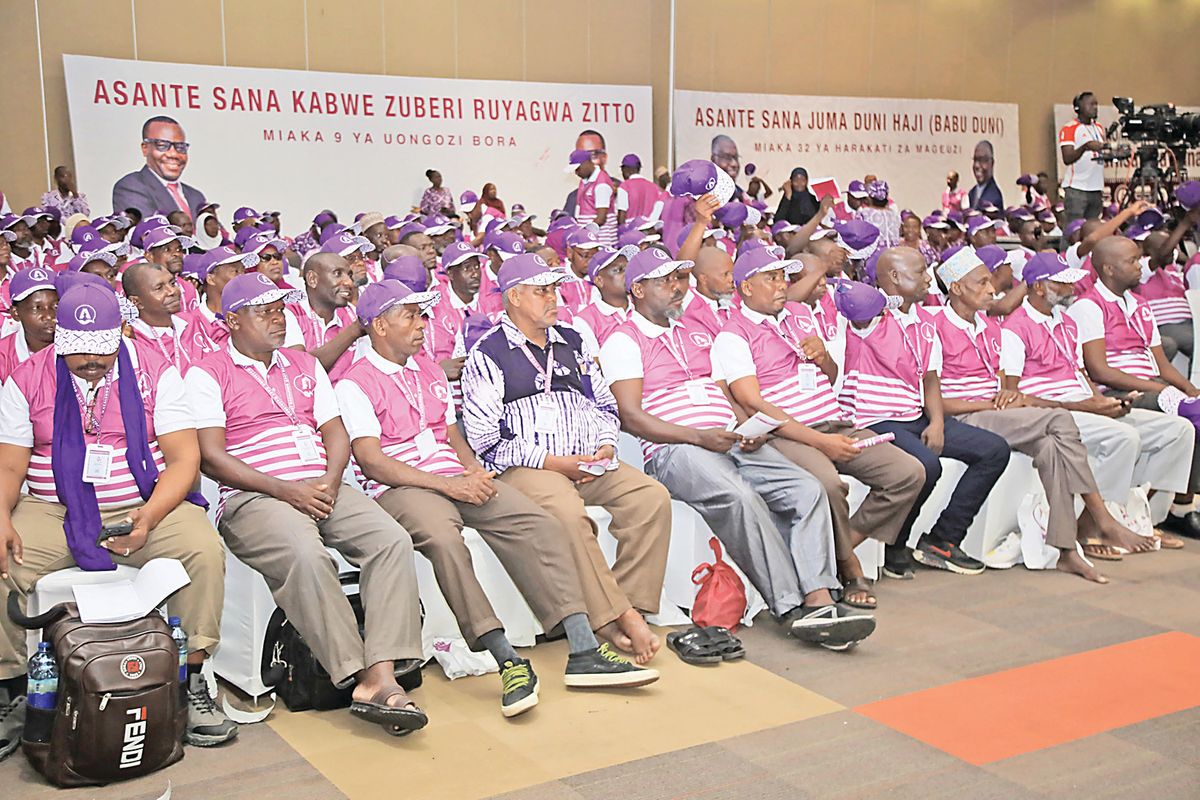By Ezekiel Kamwaga
When ACT-Wazalendo was founded ten years ago, I had a front-row view of what was happening. Actually, the day before former ACT-Wazalendo party leader Zitto Kabwe announced his decision to join the party, I was with him discussing the country’s political landscape.
The odds were stacked against ACT-Wazalendo from the day of its inception. In 2014, Zitto’s erstwhile party, Chadema, was the main opposition outfit in Tanzania and was the most organised structurally, organisationally and ideologically among all opposition parties in Tanzania. Chadema was also in a league if its own when it came to financial muscle among opposition parties.
In Tanzania, it is generally considered politically suicidal for opposition leaders to either jump ship or be kicked out of their parties. Zitto left Chadema of his own volition, but it took court injunctions to stop his former party from expelling him.
When Augustine Mrema, Shaibu Akwilombe, David Kafulila, Msafiri Mtemelwa and many others switched parties, their influence as political operators waned. Not surprisingly, Zitto was widely seen as taking a huge risk by establishing a brand new party.
But Zitto’s well documented battles with Chadema and other adversaries have shown that he doesn’t hesitate to stick to what he believes in. He has also proven to be a highly adaptable politician – a political chameleon, if you will.
Zitto, originally a leftist, has since moved to the centre. The turning point for ACT-Wazalendo came in 2018 when former Civic United Front (CUF) leaders trooped into the new party, where Zitto welcomed them with open arms.
It was a time when almost everybody thought that the late opposition stalwart Maalim Seif Shariff Hamad and his followers would join Chadema. It was not to be and Zitto deftly engineered their switch and allegiance to ACT-Wazalendo.
Before Maalim Seif joined ACT-Wazalendo, the party was on its knees. Its chief ideologue, Prof Kitila Mkumbo, and another founder, Samson Mwigamba, had joined the ruling CCM along with the party’s 2015 presidential candidate, the late Anna Mghwira. However, the coming of Maalim Seif and the likes of Othman Masoud, Ismail Jussa, Juma Duni Haji, Mbarala Maharagande and Joran Bashange threw a lifeline to the party.
In a just a fortnight, ACT-Wazalendo had transformed itself from a political party on its deathbed into the main opposition party in Zanzibar. It made people sit up and take notice.
In Zanzibar, CUF – the party founded by Maalim Seif and others – stood for what it thought was in Zanzibaris’ best interests, including statehood. In the mainland, CUF was more of an issue-based party. Of course, touching both the emotional and mental sides of voters is crucial for any party.
Party of the future
Earlier this year, ACT-Wazalendo concluded its internal elections. The elections were competitive and left no doubt that, among political parties in the country, ACT-Wazalendo has the most capable youthful leaders.
Abdul Nondo, the party’s youth wing leader, is eloquent and battle-hardened. If a debate involving youth wing leaders of all political parties in the country were to be organised, ACT-Wazalendo – also known as the Purple Party – is likely to win hands down.
It also has the best gender, youth and adult balance of all political parties in Tanzania. Following the party’s establishment of its Shadow Cabinet office, all up-and-coming leaders have been given responsibilities and the future looks great.
CCM was at its best when its youth wing comprised the Jakaya Kikwetes and Emmanuel Nchimbis of the yonder. At its peak, CUF had the likes of Mazee Rajab Mazee and Ismail Jussa. When Chadema was at its best, its youthful leaders were the likes of John Heche, Halima Mdee, Patrobas Katambi and several others.
It is safe to conclude that youthful energy has shifted to the Purple Party, without forgetting that it is currently the third-largest party in the country in terms of supporters and financial capability.
For the first time in its short history, ACT-Wazalendo now has leaders all over the country following the conclusion of its internal elections earlier in the year.
The party also has its own headquarters in Magomeni, Dar es Salaam; a shadow cabinet to follow up and make intelligent comments on the CCM government’s policies; its first woman party leader in Dorothy Semu and former leaders Zitto and Juma Duni Haji operating behind the scenes.
Recent elections in Gambia and Senegal have shown that ousting an incumbent party requires a united opposition. Forming political coalitions is the most effective way of attaining this goal.
As things are in Tanzania, ACT-Wazalendo is the only party that can galvanise coalitions on both sides of the United Republic of Tanzania. If anything happens to CCM or Chadema, the most likely destination of the aggrieved will be the Purple Party.
CCM and Chadema are still the top dogs, but the momentum is now with the Purple Party.
Ezekiel Kamwaga is a journalist and political scientist focusing on African politics















